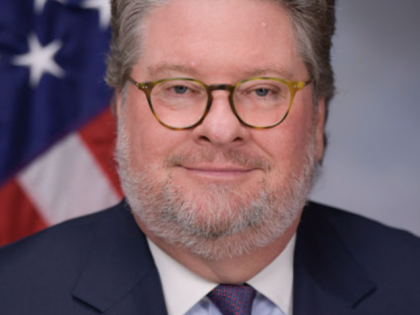
Harckham, Senate Pass Legislation to Create an Office of Addiction and Mental Health Services
May 17, 2022

Albany, NY – New York State Senator Pete Harckham and his Senate colleagues approved legislation yesterday that will merge two state agencies—Office of Mental Health (OMH) and Office of Addiction Services and Supports (OASAS)—and create a new state agency, the Office of Addiction and Mental Health Services.
“Not a week goes by that I don’t get a call from a family who has lost a loved one, who said their family member was in and out of treatment six, seven, eight, nine times, but because they never treated their underlying mental health disorder, they kept self-medicating until fentanyl caught up to them,” said Harckham. “This bill will break down the barriers in treatment programs, and follow the federal government’s recommendation for integrated care.”
Harckham noted that while extra resources are now being directed toward the overdose crisis, integrated care is necessary because 70% of people who present with substance use disorder (SUD) have an underlying mental health disorder (a figure that rises to 90% when a person is in crisis), and 50% of people with mental illness have an underlying SUD.
“Two siloed systems—OASAS and OMH—with two separate funding streams, two separate bureaucracies for families to navigate, two separate sets of books and rules, and two separate doors, literally, to get treatment: it just doesn’t work,” said Harckham. “It’s time to create a system with no wrong door.”
To see a video of Harckham speaking in support of the legislation on the floor of the State Senate, click here.
In addition, the newly passed legislation (S.5084C), which Harckham introduced, will create a seven–person standing advisory committee on addiction and mental health services to ensure that the state policy for the prevention, care, treatment and rehabilitation of individuals with mental illness and substance use is planned, developed and implemented comprehensively.
Once enacted, this new law allows the current commissioners of OMH and OASAS to continue in their roles with their respective agencies until the governor nominates a commissioner for the new state agency and the nominee is confirmed by the State Senate. During this time, the governor can appoint someone to run the single agency until a nominee is confirmed.
In March 2021, Harckham held a press conference in Albany and received strong backing from advocacy groups across the state about merging OMH and OASAS into one agency. Earlier this year, Harckham, chair of the Senate Committee on Alcoholism and Substance Abuse, and State Sen. Samra G. Brouk, chair of the Senate Committee on Mental Health, were both instrumental in getting a proposal for the merger into the Senate’s one-house 2022-2023 state budget plan.
Harckham noted that legislation for the proposed merger of agencies has been discussed conceptually for years. To address various concerns about the merger, discussions have been held with providers, families, treatment professionals and paraprofessionals, plus participation from the public and private sector unions. Scope of practice issues have been looked at as well.
The new legislation requires that any cost-savings that occur because of the merger go toward programs and services benefitting residents served by the agency.
Andrea Smyth, president and CEO of the New York State Coalition for Children’s Behavioral Health, said her organization “joins proponents of change in supporting Senator’s Harckham's legislation to establish the Office of Addition and Mental Health Services. The pain felt by countless families who cannot access the care and treatment their children need is the most compelling argument we can make in favor of this change. We are faced with both a national addiction crisis and a national children’s mental health crisis, so every effort to better serve youth with co-occurring disorders and improve prevention services must be pursued.”
Stephanie Marquesano, founder and president of the harris project, said, “Creating a robust Office of Addiction and Mental Health Services is an incredible opportunity to develop infrastructure, institute a single license, implement evidence-based and promising practices, ensure training and quality improvement, and provide technical assistance to integrate the entire system of care from prevention, early intervention, treatment, recovery, and housing. This will have a positive and lasting impact for so many New Yorkers and their loved ones who face insurmountable obstacles in their efforts to find appropriate support for their mental health, substance use, and co-occurring disorders.”
“As the parent of Harris, a nineteen-year-old with co-occurring disorders who died by accidental overdose in 2013, I know first-hand how many lives will be positively impacted by this integration of the agencies,” Marquesano added. “The convergence of the COVID-19 pandemic and its impact on mental health and addiction is staggering. This is watershed moment for the State of New York and a chance to make history by turning the tide on the record number of fatal overdoses, staggering number of alcohol-related deaths and deaths by suicide.”
Paige Pierce, CEO of Families Together in New York State, said, “To many parents and young people suffering from addiction, it’s apparent that their substance use and mental health are deeply intertwined. Parents are often forced to navigate these systems as if they have two different children: one with emotional pain and one with substance use disorder. Too often, the result is that both needs are left unmet, as each system wastes valuable time deciding who this child belongs to—and the consequences are deadly. This long-needed merger presents an opportunity to finally improve the way families experience care on the ground so that there is no wrong door. To meaningfully integrate care, we must integrate the entire system and that starts with these agencies.”



